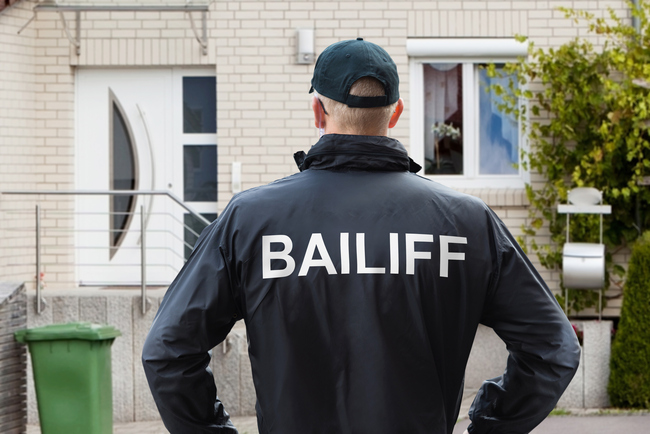In the face of budget cuts and increasing numbers of individuals falling behind on council debt payments, a recent analysis reveals that English councils have escalated their use of bailiff referrals by more than 20%.
The thought of bailiffs at your doorstep is unsettling for many, and the recent upswing in bailiff referrals is a cause for concern for numerous residents.
A BBC investigation uncovered a 20% increase in bailiff usage by councils to reclaim overdue debts. With councils under financial strain due to budget cuts and some even grappling with their own debts, local authorities assert the necessity of recovering every owed penny to maintain community services.
Out of 280 English councils, Birmingham experienced the most significant surge in bailiff referrals from 2022 to 2023, with referrals in a seven-month period soaring from 7,875 to 42,283 – a 500% increase. Chorley stands out for reducing referrals by 80%, adopting a policy focused on support by employing a social prescribing team to assist vulnerable individuals directly.
Council Debts Explained: Council debts encompass council tax arrears, parking fines, unpaid business rates, and housing rent arrears.
An estimated £500m in public debt goes uncollected annually, straining council finances. The current cost-of-living crisis exacerbates the difficulty for many in settling their debts.
Council Debt Enforcement: Before taking enforcement action, councils must obtain a liability order.
Failure to keep up with council tax payments or settle council parking fines can lead the council to seek a liability order from the magistrates’ court, enabling them to proceed with enforcement measures.
These measures may include bailiff intervention, deductions from earnings or benefits, securing the debt against property, or bankruptcy proceedings.
Councils have discretion in their choice of enforcement action but are limited to one action per liability order.
Upon bailiff involvement, a minimum seven-day notice is provided, and entry into your home is not compulsory.
Cost Implications of Bailiff Involvement: Enforcement actions incur additional charges, further burdening the debtor:
- Court permission to recover funds incurs a £100 charge.
- Contracting an enforcement agency adds £75.
- A bailiff’s visit imposes an additional £235.
- Seizing and auctioning goods to cover the debt adds £110.
- Involvement of High Court bailiffs or debts exceeding £1,500 can lead to even higher costs.
Addressing Council Debts: If you’re behind on council taxes or other council-related debts, there are steps to avert bailiff action:
Make a Payment Proposal: You can propose a payment plan to the council at any stage. Immediate payment is advisable if feasible. Otherwise, devise a payment schedule based on your budget, ready to substantiate your proposal if required.
Utilise Breathing Space: The Breathing Space scheme provides a 60-day period for debt advice and management solution exploration, during which the council cannot initiate further action, including bailiff referral. Eligibility for this scheme is once annually.
Seek Debt Counselling: Professional debt advice can offer strategies to manage council debts effectively and prevent bailiff action. The Bailiff Helpline team is ready to understand your situation and guide you towards suitable debt management solutions.
For assistance with council debts, contact the Bailiff Helpline at 0161 660 7255 or visit bailiffhelpline.co.uk for more information.



 Bitcoin
Bitcoin  Ethereum
Ethereum  Tether
Tether  XRP
XRP  Solana
Solana  USDC
USDC  TRON
TRON  Cardano
Cardano  Lido Staked Ether
Lido Staked Ether  Avalanche
Avalanche  Toncoin
Toncoin